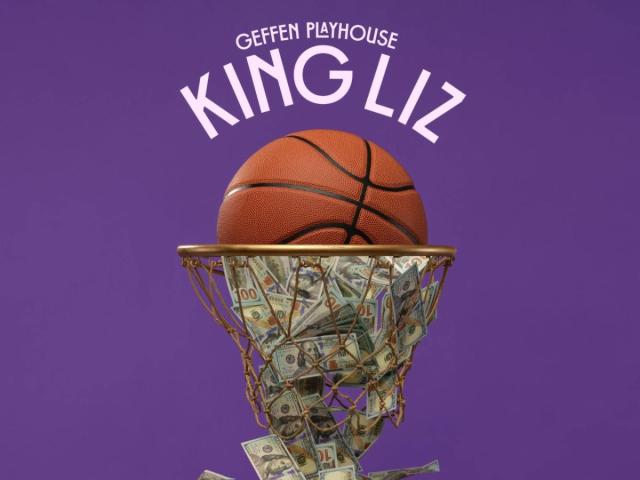

King Liz rips the lid off the world of professional basketball to reveal just how ugly and messy it is.
Set largely in the office of a high-powered sports agency, the play by Fernanda Coppel focuses on Liz Rico (Sabrina Sloan). A sleek, profane, hard-driving African-American woman, she has been at the Candy Agency for some 20 years, slowly working her way up the ladder (from humble origins). She is next in line to take over the agency from its present king, Mr Candy himself (Ray Abruzzo), who is both fond and wary of her (as behooves a typical corporate shark). What triggers his concern about Liz is the decision on her part to sign a new but unreliable client, Freddie Luna (Evan Morris Reiser).
Freddie is only 19, a black kid recently out of a Brooklyn high school. He’s a basketball phenom, on the order of LeBron James or Kobie Bryant, both of whom became NBA stars when they were teenagers. Neither of those prodigies, though, had the kind of baggage that Freddie did: a criminal record.
Liz learns that Freddie got caught up in a gang fight about a year ago and beat up two of his enemies, sending them to the hospital and himself to juvenile detention. Freddie denies having taken part in the brawl–-“I took the rap to protect one of my homies”–-but he is still guilty in the eyes of the law.
Liz knows that the press will run with this story, but she signs Freddie anyway, hoping that if he succeeds the way LeBron and Kobie did, she will become the richest, most powerful sports agent in the world (and the sure successor to the Candy throne).
Her ascension is somewhat thwarted, first by Freddie himself. Suspicious of white people, embittered by his incarceration, he proves tough to deal with. Liz hangs in and pulls some strings to get him drafted by the New York Knicks, a team desperately in need of success. They sign Freddie to a three-year, twenty-million-dollar contract. This, however, does not impress the Knicks’ Coach Jones (Oscar Best), who is worried about keeping his job and doesn’t relish dealing with a raw kid one step out of the ‘hood, a kid who was probably signed for publicity purposes only.
Coach Jones, in his first meeting with Freddie, insults and abuses the latter, thereby throwing Freddie into an emotional tailspin. His youth, insecurities and simmering anger get the best of him, and he ends up throwing a punch at the coach.
Playwright Coppel has put her finger on a very real problem in big-time American sport. Innumerable black kids out of impoverished circumstances have found it hard to handle the pressure that comes with highly competitive sports–-the money, fandom and media attention as well. Normally, though, by the time they have been tested and coached on the collegiate level, they manage to grow up and take control of their lives. Not so with Freddie.
Used by agents like Liz Rico, rejected by coaches like Jones, pilloried by the press, poor Freddie breaks down and self-destructs, right before our eyes. His plight is caused not only by Liz and Jones, but by a Barbara Walters-like TV journalist, played by Nancy Linari.
It should be noted that Michelle Ortiz, as Liz’s ambitious but obsequious assistant Gaby, almost walks away with the play.
The sad but all-too-true King Liz is brilliantly acted by the six-person cast (some of whom, though, it must be said, lose projection at key times). Coppel’s dialogue is sharp and snappy throughout, and director Prudencio keeps things moving swiftly and deftly, aided by Justin Humphres’s video design.
King Liz, in basketball parlance, has got lots of game.
